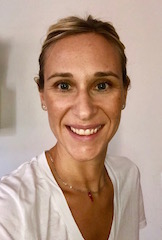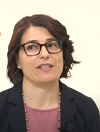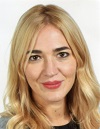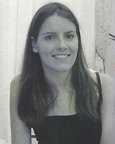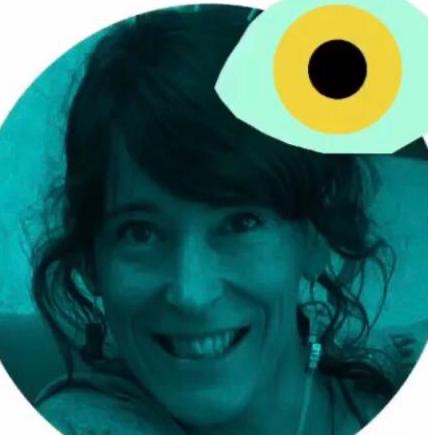Studying at the University of Verona
Here you can find information on the organisational aspects of the Programme, lecture timetables, learning activities and useful contact details for your time at the University, from enrolment to graduation.
Academic calendar
The academic calendar shows the deadlines and scheduled events that are relevant to students, teaching and technical-administrative staff of the University. Public holidays and University closures are also indicated. The academic year normally begins on 1 October each year and ends on 30 September of the following year.
Course calendar
The Academic Calendar sets out the degree programme lecture and exam timetables, as well as the relevant university closure dates..
| Period | From | To |
|---|---|---|
| Sem. 1A | Sep 27, 2021 | Nov 6, 2021 |
| Sem. 1B | Nov 15, 2021 | Jan 12, 2022 |
| Sem. 2A | Feb 14, 2022 | Mar 26, 2022 |
| Sem. 2B | Apr 4, 2022 | Jun 4, 2022 |
| Session | From | To |
|---|---|---|
| Sessione Invernale | Jan 10, 2022 | Feb 12, 2022 |
| Sessione estiva | Jun 6, 2022 | Jul 23, 2022 |
| Sessione autunnale | Aug 29, 2022 | Sep 24, 2022 |
| Session | From | To |
|---|---|---|
| Sessione estiva | Jul 11, 2022 | Jul 16, 2022 |
| Sessione autunnale | Nov 7, 2022 | Nov 12, 2022 |
| Period | From | To |
|---|---|---|
| FESTIVITA' OGNISSANTI | Nov 1, 2021 | Nov 1, 2021 |
| Vacanze di Natale | Dec 25, 2021 | Jan 6, 2022 |
| VACANZE DI PASQUA | Apr 15, 2022 | Apr 19, 2022 |
| Festa della Liberazione | Apr 25, 2022 | Apr 25, 2022 |
| FESTA DEL LAVORO | May 1, 2022 | May 1, 2022 |
| Festività Santo Patrono di Verona | May 21, 2022 | May 21, 2022 |
Exam calendar
Exam dates and rounds are managed by the relevant Humanistic Studies Teaching and Student Services Unit.
To view all the exam sessions available, please use the Exam dashboard on ESSE3.
If you forgot your login details or have problems logging in, please contact the relevant IT HelpDesk, or check the login details recovery web page.
Should you have any doubts or questions, please check the Enrollment FAQs
Academic staff
 donato.desilvestri@univr.it
donato.desilvestri@univr.it
 ilaria.mussini@univr.it
ilaria.mussini@univr.it
 barbara.zoccatelli@unitn.it
barbara.zoccatelli@unitn.it
Study Plan
The Study Plan includes all modules, teaching and learning activities that each student will need to undertake during their time at the University.
Please select your Study Plan based on your enrollment year.
1° Year
| Modules | Credits | TAF | SSD |
|---|
2° Year activated in the A.Y. 2022/2023
| Modules | Credits | TAF | SSD |
|---|
3° Year activated in the A.Y. 2023/2024
| Modules | Credits | TAF | SSD |
|---|
| Modules | Credits | TAF | SSD |
|---|
| Modules | Credits | TAF | SSD |
|---|
| Modules | Credits | TAF | SSD |
|---|
| Modules | Credits | TAF | SSD |
|---|
Legend | Type of training activity (TTA)
TAF (Type of Educational Activity) All courses and activities are classified into different types of educational activities, indicated by a letter.
Ethics and philosophy of the person (2023/2024)
Teaching code
4S02875
Teacher
Coordinator
Credits
6
Language
Italian
Scientific Disciplinary Sector (SSD)
M-FIL/03 - MORAL PHILOSOPHY
Period
Sem. 2A dal Feb 19, 2024 al Mar 29, 2024.
Courses Single
Authorized
Learning objectives
Knowledge and understanding 1. To know the philosophical grounds of the main ethical and moral notions intervening in the sphere of training experiences, with specific attention to the themes of the subject, of the person and of the interpersonal relationship. 2. To know the main philosophical and cultural patterns for describing personal identity and to be able to read the structure and complexity of educational processes in their multiple features, in particular those related to the emotions and the corporeality of the person. 3. To know and understand the ethical and philosophical nature of the concept of formation, which should be understood not only as training for learners or users, but also as a process that transforms the trainer itself. 4. Understanding the issue of personal identity formation, exploring the narrative dimension of the self and discussing the relationship between identity and the digital environment, an increasingly negligible dimension in today's educational practices. Applying knowledge and understanding 1. To orientate critically oneself among the main theoretical, cultural and philosophical perspectives concerning the ethical and moral questions connected to the pedagogic processes, with specific attention to the themes of the subject, of the person and of the interpersonal relationship. 2. To use correctly the philosophical lexicon, gaining a greater awareness of the major concepts in the ethical and educational field, aiding the acquisition of a more responsible and aware action capacity in the different relational and educational contexts. 3. To conduct autonomously analysis of empirical situations typical of the contemporary world, inherent both the educational and the relational practices in general, tracing the terms of the problem of personal identity to philosophical categories. 4. To elaborate philosophically founded connections with respect to the ethical problem of the child understood as a "person", deepening not so much the question of a philosophy for childhood but that of childhood as a place of a different possibility for philosophy.
Program
CARE, EDUCATE, GOVERN: THE “IMPOSSIBLE” PROFESSIONS
The course starts from a famous expression by Freud who, in "Analysis terminable and interminable", defines treating, educating and governing as "impossible professions". Impossible, of course, to formalize according to standard rules and procedures. Impossible but necessary: in fact, the impracticability of a universally valid method in these professions - as Freud himself clarifies - does not exclude the possibility of a certain know-how that leverages transfert. The course therefore aims to highlight the role of transfert in teaching, education and care.
The first part of the course will start from the function that Plato assigns to eros in education and training (with particular reference to the "Symposium", passages of which will be read in class). It will therefore be shown how Plato anticipates the function of transfert (giving it a central role within the education of the person and his cultural formation), a function that will be developed by Freud in the context of treatment.
The Freudian notions of drive and transfert will then be addressed, in particular through the reading of Freud's texts "Three essays on sexuality", "Beyond the pleasure principle" and "Constructions in analysis".
A final part of the course will explore the link between the Freudian notion of "impossible profession" and the Deleuzian and Guattarian notion of "nomadic science" found in "Mille Plateaux".
BIBLIOGRAPHY for attending students:
1) S. Freud, "Tre saggi sulla teoria sessuale", Bollati Boringhieri, Torino 2012 (in particolare il secondo e il terzo saggio, intitolati rispettivamente "La sessualità infantile" e "Le trasformazioni della pubertà")
2) S. Freud, "Costruzioni nell'analisi" in "Analisi terminabile e interminabile. Costruzioni nell'analisi", Bollati Boringhieri, Torino 2020
3) M. Recalcati, "L'ora di lezione. Per un'erotica dell'insegnamento", Einaudi, Torino 2014
4) E. Redaelli, "La danza della pulsione. Al di qua, al di sotto e al di là del principio di piacere", in "Dialegesthai. Rivista di filosofia", 31/12/2020 (https://mondodomani.org/dialegesthai/articoli/enrico-redaelli-03)
BIBLIOGRAPHY for NON-attending students:
1) S. Freud, "Tre saggi sulla teoria sessuale", Bollati Boringhieri, Torino 2012 (in particolare il secondo e il terzo saggio, intitolati rispettivamente "La sessualità infantile" e "Le trasformazioni della pubertà")
2) S. Freud, "Costruzioni nell'analisi" in "Analisi terminabile e interminabile. Costruzioni nell'analisi", Bollati Boringhieri, Torino 2020
3) M. Recalcati, "L'ora di lezione. Per un'erotica dell'insegnamento", Einaudi, Torino 2014
4) E. Redaelli, "La danza della pulsione. Al di qua, al di sotto e al di là del principio di piacere", in "Dialegesthai. Rivista di filosofia", 31/12/2020 (https://mondodomani.org/dialegesthai/articoli/enrico-redaelli-03)
5) Bonazzi, Leoni, Pantano, Solla, Vizzardelli, "Scuola. Filosofia di un mondo", Cronopio 2023
6) Un libro a scelta tra i seguenti:
a) E. De Conciliis, "Che cosa significa insegnare?", Cronopio 2014
b) C. Sini, "Le arti dinamiche. Filosofia e pedagogia", Jaca Book, Milano 2004
c) G. Solla, "Disegnare. La formula di Freud", Orthotes 2022
Bibliography
Didactic methods
• Lectures
• Class reading of passages chosen from the texts indicated in the bibliography
• Discussions on the relevant issues addressed in class. Throughout the course, moments of discussion with the students will be promoted following the stimuli offered by reading the texts.
Learning assessment procedures
The exam will be oral for both attending and non-attending students.
Evaluation criteria
The oral exam consists of a presentation of the topics covered in the course and has the aim of ascertaining the candidate's preparation on the lessons, on the texts in question and on his ability to give a critical interpretation of them. In particular, the following will be assessed:
• knowledge and autonomous re-elaboration of the fundamental points of the course and the ability to analyze similarities and differences between the authors examined;
• the student's logical and argumentative skills in relation to the analysis and critical discussion of the texts taken into consideration.
Criteria for the composition of the final grade
The vote is unique.
Exam language
italiano
Type D and Type F activities
I 12 crediti liberi a scelta dello studente (ambito “D”) hanno lo scopo di offrire allo studente la possibilità di personalizzare il proprio percorso formativo permettendo di approfondire uno o più argomenti di particolare interesse legati al proprio percorso accademico.
Per garantire questo fine, si invitano gli studenti a rispettare le seguenti indicazioni per il completamento di tale ambito:
- almeno un’attività formativa erogata come esame universitario (con relativo voto in trentesimi) - è possibile scegliere fra i vari insegnamenti del proprio CdS non sostenuti in precedenza, anche quelli dell'altro curriculum, fra i vari insegnamenti degli altri CdS di I° livello afferenti al Dipartimento di Scienze Umane ed anche fra i vari insegnamenti dei CdS di I° livello ad accesso libero erogati dall'Ateneo di Verona;
- massimo 6 cfu relativi a competenze linguistiche (oltre a quelli previsti dal PdS);
- massimo 6 cfu relativi a competenze informatiche (oltre a quelli previsti dal PdS);
- massimo 4 cfu di tirocinio, (oltre a quelli previsti dal PdS);
- massimo 6 cfu di attività laboratoriale/esercitazioni (compresi quelli previsti nei PdS per l’ambito) di regola viene riconosciuto 1 cfu ogni 25 ore di attività;
- massimo 6 cfu di attività seminariale/convegni/cicli di incontri/formative in genere (sia accreditata dal Dipartimento di Scienze Umane che extrauniversitaria) – di regola viene riconosciuto 1 cfu ogni 8 ore di partecipazione e/o 2 giornate salvo diversamente deliberato;
- non vengono valutate attività svolte in Erasmus non inserite nei Learning Agreement.
COMPETENZE TRASVERSALI
Scopri i percorsi formativi promossi dal Teaching and learning centre dell'Ateneo, destinati agli studenti iscritti ai corsi di laurea, volti alla promozione delle competenze trasversali:
https://talc.univr.it/it/competenze-trasversali
| years | Modules | TAF | Teacher |
|---|---|---|---|
| 1° 2° 3° | What paradigms beyond the pandemic? | D |
Paola Dal Toso
(Coordinator)
|
| 1° 2° 3° | The ethics and aesthetics of the image | D |
Gianluca Solla
(Coordinator)
|
| years | Modules | TAF | Teacher |
|---|---|---|---|
| 1° 2° 3° | What paradigms beyond the pandemic? | D |
Paola Dal Toso
(Coordinator)
|
| 1° 2° 3° | Laboratorio “Calendario di Memoria Civile – Giornata della Memoria” | D |
Olivia Guaraldo
(Coordinator)
|
| years | Modules | TAF | Teacher |
|---|---|---|---|
| 1° 2° 3° | Introduction to robotics for humanities students | D |
Paolo Fiorini
(Coordinator)
|
| years | Modules | TAF | Teacher |
|---|---|---|---|
| 1° 2° 3° | Restorative Justice | D |
Cristina Lonardi
(Coordinator)
|
| 1° 2° 3° | Group Psychology and the Analysis of the Ego, a hundred years later: social bond and new forms of subjectivation. | D |
Matteo Bonazzi
(Coordinator)
|
| 1° 2° 3° | Gnoseology and Metaphysics Workshop | D |
Davide Poggi
(Coordinator)
|
| years | Modules | TAF | Teacher |
|---|---|---|---|
| 1° 2° 3° | Partecipated justice and reforms. The settlement of conflicts with people and for people | D |
Cristina Lonardi
(Coordinator)
|
| 1° 2° 3° | Gnoseology and Metaphysics Workshop | D |
Davide Poggi
(Coordinator)
|
Career prospects
Module/Programme news
News for students
There you will find information, resources and services useful during your time at the University (Student’s exam record, your study plan on ESSE3, Distance Learning courses, university email account, office forms, administrative procedures, etc.). You can log into MyUnivr with your GIA login details: only in this way will you be able to receive notification of all the notices from your teachers and your secretariat via email and soon also via the Univr app.
Graduation
Documents
| Title | Info File |
|---|---|
|
|
pdf, it, 99 KB, 13/10/23 |
|
|
pdf, it, 101 KB, 10/04/24 |
List of theses and work experience proposals
| theses proposals | Research area |
|---|---|
| Ambienti e contesti di lavoro con minori | Various topics |
| Analisi dei personal network di sostegno | Various topics |
| comunicazioni relative alla tesi | Various topics |
| Il teatro come contesto educativo | Various topics |
| I processi di globalizzazione culturale nella società contemporanea | Various topics |
| La social network analysis applicata allo studio dei contesti educativi | Various topics |
| L'educatore ed i progetti europei | Various topics |
| L'impegno associativo in ambito educativo | Various topics |
| Politiche sociali e contesti educativi | Various topics |
| Progetti di collaborazione con le istituzioni scolastiche | Various topics |
| PROPOSTE TESI AMBITO GEOGRAFICO | Various topics |
| Scuola e capitale sociale | Various topics |
Linguistic training CLA
Gestione carriere
Student mentoring
Practical information for students
Documents
| Title | Info File |
|---|---|
|
|
pdf, it, 325 KB, 02/05/23 |
|
|
pdf, it, 212 KB, 02/05/23 |
|
|
pdf, it, 131 KB, 02/05/23 |
Stage e Tirocini
Le ulteriori attività formative (crediti F) sono interamente coperte dall’attività di tirocinio “indiretto” (1 cfu) da svolgersi nel secondo anno e di tirocinio “diretto” (14 cfu) da svolgersi presso enti convenzionati per un numero complessivo di 15 cfu (375 ore). Chi è iscritta/o al curriculum servizi per l’infanzia è tenuta/o a svolgere il tirocinio presso nidi e servizi per la prima infanzia per almeno il 50% delle ore.
Il tirocinio professionalizzante (375 ore, pari a 15 cfu), è obbligatorio sia nella sua forma diretta che indiretta.
Il tirocinio indiretto, della durata di 25 ore a frequenza obbligatoria al 75%, si svolge in Università per 20 ore e in forma di lavoro individuale per 5 ore e consiste in un accompagnamento iniziale delle/degli studenti da parte dei tutor attraverso un percorso formativo dotandoli di conoscenze e strumenti adeguati a osservare, comprendere e rielaborare criticamente l’esperienza di tirocinio nei servizi educativi e ad affrontare il tirocinio negli enti con metodo e consapevolezza. Il percorso, da attuare in gruppi da 20-25 persone sotto la supervisione di un tutor, risponde alle esigenze costantemente espresse sia dalle/dagli studenti stessi sia dalle parti sociali che dai referenti degli enti convenzionati.
Il tirocinio diretto si propone di raggiungere i seguenti obiettivi:
- fare esperienza diretta di attività professionali, che richiedono un livello di preparazione al lavoro educativo;
- approfondire in particolare il rapporto tra preparazione teorica, acquisita mediante lo studio, ed esperienza pratica, tra mondo del sapere e della cultura e mondo del lavoro e delle professioni;
Al termine del tirocinio diretto lo studente deve presentare una relazione scritta, nella modalità concordata con il tutor accademico.
Nuove Linee Guida per il tirocinio di Scienze dell'educazione.
- Tutte le informazioni in merito agli stage per futuri studenti sono disponibili alla pagina Stage e tirocini.
- Tutte le informazioni in merito agli stage per studenti iscritti sono pubblicate in MyUnivr - come fare per - stage e tirocini.
- Tutte le informazioni in merito agli stage per le aziende sono disponili alla pagina Stage e tirocini per azienze.
Documents
| Title | Info File |
|---|---|
|
|
pdf, it, 302 KB, 16/07/21 |
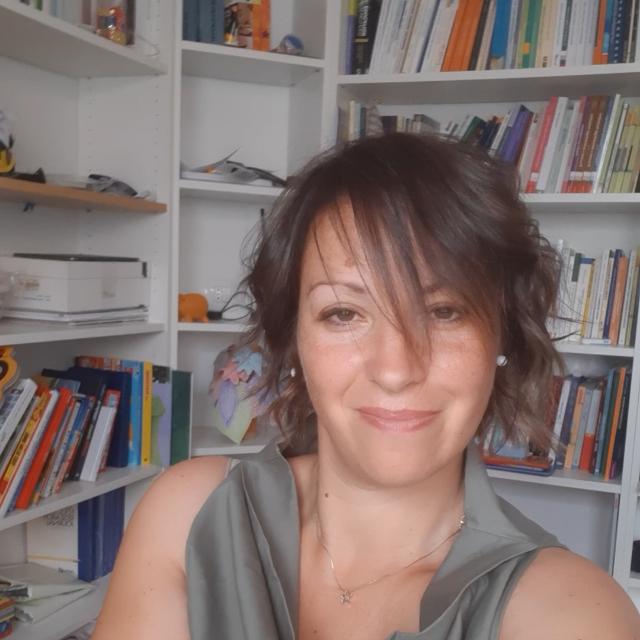
 045 8028383
045 8028383







